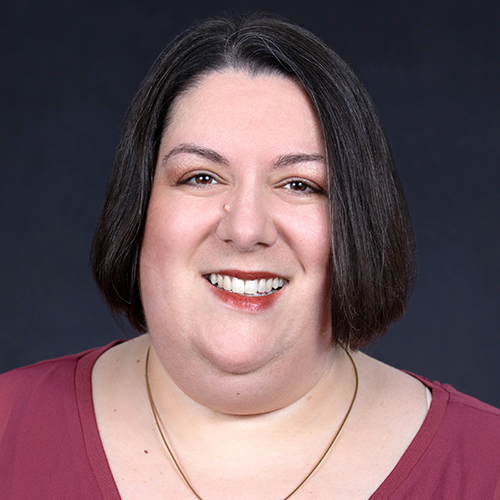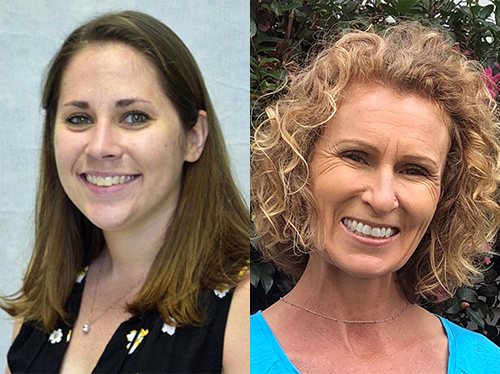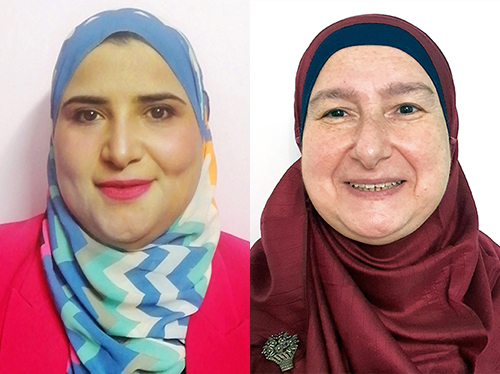 Maternal Illness & Breastfeeding Online Course(s) & Continuing Education
Maternal Illness & Breastfeeding Online Course(s) & Continuing Education
Access the latest clinical skills and research for Maternal Illness & Breastfeeding for Lactation & Breastfeeding professional training. These Maternal Illness & Breastfeeding online courses provide practice-changing skills and valuable perspectives from leading global experts. This Maternal Illness & Breastfeeding education has been accredited for a variety of CEUs / CERPs and can be accessed on-demand, at your own pace.
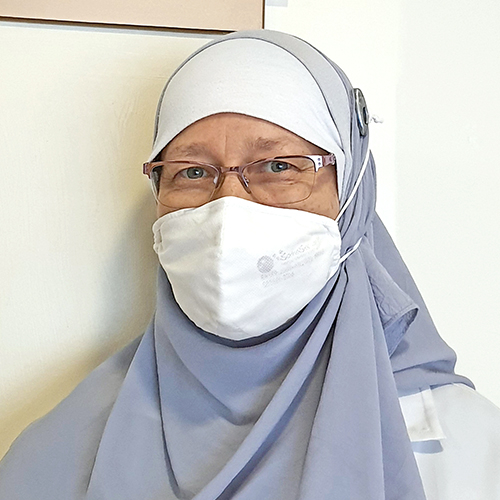

Evelyne Ruf is a family physician from France, and an International Board Lactation Consultant (since 1993). More than 25 years ago, she shifted to the United Arab Emirates (UAE), working for the Ministry of Health, in Sharjah MCH Center. She opened there the first Lactation Clinic in the UAE, with the support of volunteers from Breastfeeding Friends (BFF), which she had co-founded.
Five years ago, the Lactation Clinic has been shifted to the Family Health Promotion Center, where it continues to offer, to a very cosmopolitan population, skilled lactation support as well as assessment and release of tethered oral tissues.
A member of the National Breastfeeding Committee, Evelyne has been involved in the Baby-Friendly Hospital Initiative as a lecturer, trainer, adviser and assessor. Her workplace became the first Baby-Friendly Health Center in the UAE and received the IBCLC Care Award (community category) in 2015.
She has also been actively involved in the Sharjah Baby-Friendly Emirate Campaign, a multi-sectorial initiative launched in 2012, and presented its achievements during Gold Lactation 4 years ago.
With her husband of 34 years, she is the proud and grateful mother of 5 grown-up breastfed children and the grandmother of 4 breastfed little ones.
Topic: The Sharjah Baby-Friendly Campaign: A Community-Based Model for Breastfeeding Promotion, Protection and Support - [View Abstract]
“Hello, the Lactation clinic? Here is a nurse from Primary Health Care; we have a mother engorged in the hotel, can you help her?”…
After taking some time to understand this strange call, we embarked on a totally unexpected journey: trying to support 25 Covid-19 positive asymptomatic mothers, most of them isolated without their newborn. This happened between April and June 2020, in Sharjah, United Arab Emirates, as a consequence of the initial USCDC recommendations.
This presentation describes the intense practical, clinical and emotional support needed by these mothers to cope with their traumatizing situation, but also the silver lining of their resilience, the amazing power of peer support, and a new cooperation between health care providers from different facilities, and with lay supporters.
Further insight is provided by some research done in the UAE: an observational study from a hospital who has followed WHO recommendations, and a cross-sectional study among mothers from the community.
Lessons should be taken from the past, to prevent the repetition of decisions based on a distorted balance of benefit/risk, affecting so many families and their care providers globally.
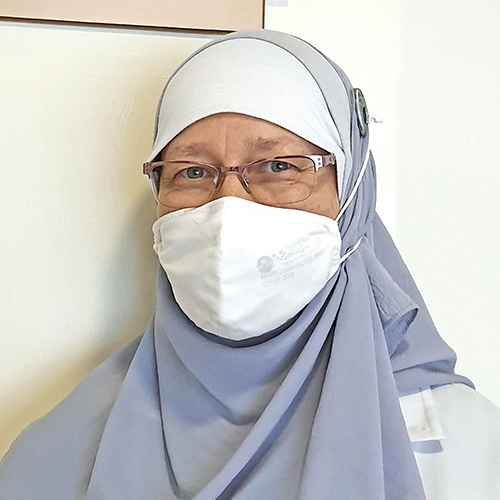
View Details / Enroll
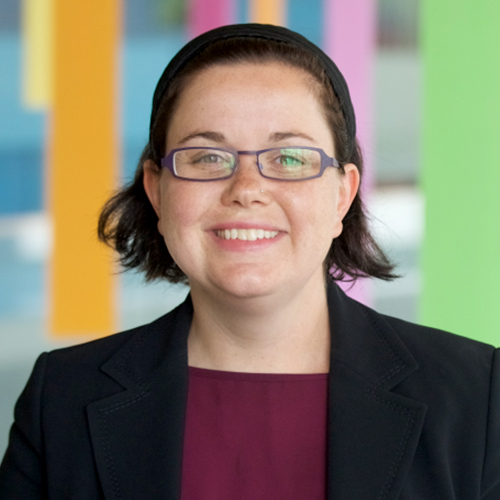
Building Bridges: Early IBCLC Recognition and Triage of Common and Life-Threatening Newborn and Maternal Pathology

Topic: How Low Is Too Low? Managing Newborn Hypoglycemia - [View Abstract]
IBCLCs, often with limited education in newborn medicine and obstetrics, care for the infant-parent dyad within the context of a complex healthcare system staffed by providers with variant training in breastfeeding medicine. This is an interaction filled with knowledge gaps and fraught with the possibility for misunderstanding and dangerously missed diagnoses. I plan to combine my training in general pediatrics and my clinical experience as a pediatric ER physician with my IBCLC training. I will teach conference participants about medical emergencies when caring for the breastfeeding newborn and the post-partum parent so that they can recognize clinical scenarios presenting to their care that require immediate medical assessment. The presentation will focus on high-yield topics in newborn medicine and postpartum obstetrics to deepen the IBCLCs recognition and ensure appropriate ongoing care for common and life-threatening complaints. It will include a discussion of neonatal jaundice, neonatal fever, severe weight loss, pyloric stenosis, congenital birth defects and genetic disorders; the lecture will also address postpartum depression, post-operative infections, and postpartum preeclampsia. Armed with this understanding of clinical red flags, IBCLCs will be empowered to better care for their breastfeeding patients, while also understanding when immediate medical assessment is imperative.
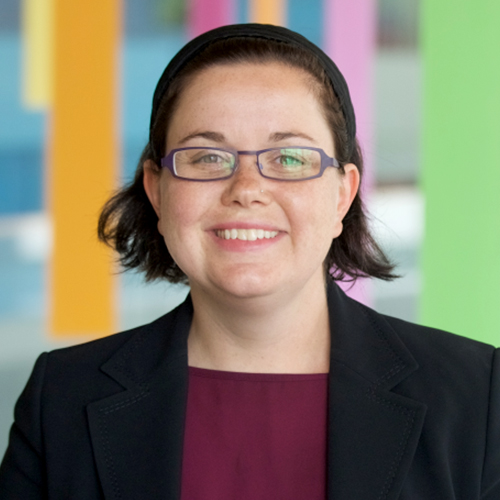
View Details / Enroll
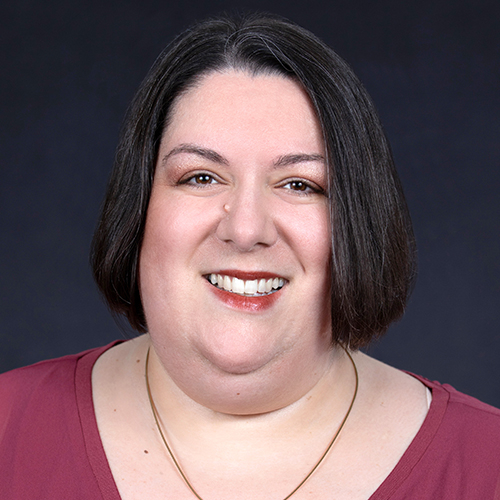
Eating Disorders in the Perinatal Client: A Trauma Informed Model

Kristin is a Licensed Clinical Social Worker and IBCLC in private practice in central NJ. Her practice specialties are low supply, maternal and infant mental health, and the intersection of ethnicity, sexual orientation, and gender in the care of the new family. She has spoken on various lactation, mental health, and equity topics for USLCA, the Lehigh Valley Breastfeeding Association Conference, the Appalachian Breastfeeding Conference, LPPEC, LC in PP, and for LLL of the Garden State. She designed and taught a training course on Mental Health First Aid for Perinatal Providers. She has been a featured speaker on several lactation related podcasts.
She is the mother of two children who nursed full term despite maternal IGT, and who are now 16 and 13. She is an anti racist LGBT+ activist, a member of transformative works fandoms, and makes fighting for a better world part of her daily life.
As lactation professionals, we see clients who are experiencing many challenges during the perinatal period. Clients with eating disorders are uniquely at risk, as are their babies. This presentation will educate the perinatal professional about how eating disorders present in the childbearing year and beyond. It will explore the connection between trauma and disordered eating, and teach how to be a trauma informed provider for eating disordered clients. It will discuss the specific and unique challenges the person with an eating disorder may have during lactation, including postpartum body image, elimination diets, and provider bias. The learner will gain the skills needed to screen for disordered eating and provide culturally humble and appropriate referral for congruent care.
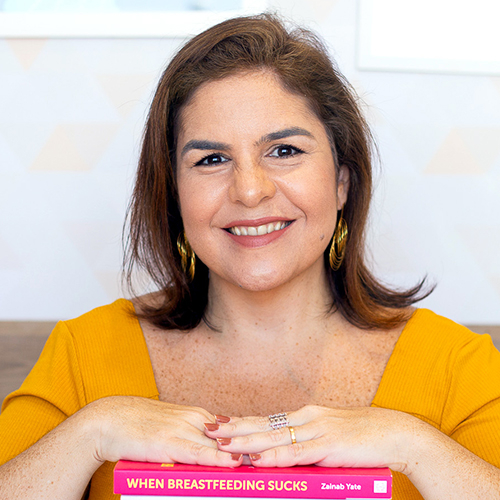
Lactation After Bariatric Surgery: Physiological, Hormonal and Psychological Implications

Bianca Balassiano has been working with families in private practice since 2008 as an IBCLC and perinatal psychologist/maternal-child health specialist. As a natural consequence of her professional background, has supported breastfeeding families into achieving individual goals while maintaining mental health and stimulating a holistic look towards the subject. Since 2014 is also working as an educator for healthcare professionals in one of the most recognized breastfeeding courses in Brazil, currently offering virtual classes and all over the country. Lives with husband and two children in Rio de Janeiro, Brazil. In 2020, she launched her first book aimed at families with the title "Gradual Weaning: How to Bring Your Breastfeeding Story to a Happy End".
Topic: Lactation After Bariatric Surgery: Physiological, Hormonal and Psychological Implications - [View Abstract]
With the increase in the prevalence of obesity internationally, the world is turning its attention to effective forms of treatment. As a result, surgical techniques are increasingly being used in an attempt to ensure weight loss, reduction of comorbidities and hormonal balance in young patients of childbearing age. However, as a restrictive and disabsortive surgery, its impacts on pregnancy, childbirth and postpartum outcomes have been increasingly studied closely. Scientific studies provide substantial data on lactation after bariatric surgery, with common outcomes such as greater use of supplementation, less exclusive breastfeeding, shorter duration of breastfeeding and a higher rate of nutritional and vitamin deficiencies. Less studied, however, are its emotional effects on the lactating person, as well as the impacts on body recognition and the difficulties in dealing with the new morphological breast/chest configuration. Therefore, it is essential that the health professional who is dedicated to working in support of breastfeeding is specially trained to support families for the proper management of breastfeeding in the presence of substantially increased risks, as demonstrated after bariatric surgery.
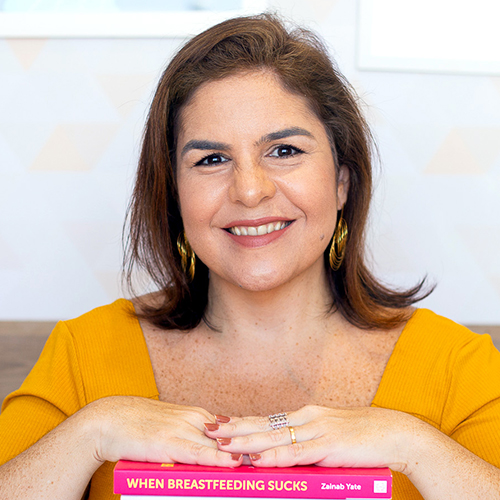
View Details / Enroll
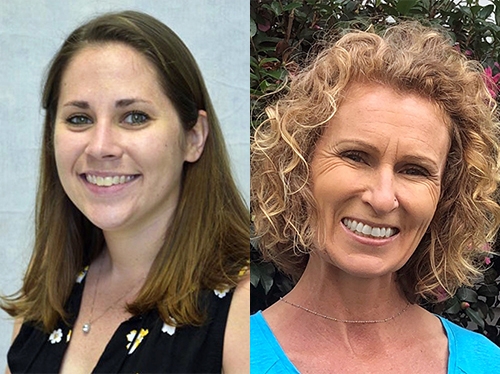

Hope has always been the type of person to dive head-first into the deep end (literally - she learned to swim before she was 2!). Hope became an International Board Certified Lactation Consultant (IBCLC) in 2017, completed her PhD in nutritional biochemistry in 2018 at NC State University, and became a Registered Dietitian Nutritionist (RDN) in 2020.
In addition to owning and operating Hope Feeds Babies in Rock Hill, SC, Hope is employed full time at Winthrop University in the Department of Human Nutrition overseeing the Certificate in Medical Lactation and running a research lab that focuses on helping mothers to reach their infant feeding goals, improving access to human milk, and analyzing the nutritional content of human milk. As an IBCLC, Hope has a passion for connecting with mothers to help them to reach their individual feeding goals and advocacy for maternal health. As an RDN, Hope loves to support parents in feeding their children, whether that is traditional solids, baby-led weaning, or blenderized tube feeds.
Karin always knew that helping people would guide the course of her career. Karin’s professional path demonstrates this passion as she pursued a BA in psychology from Villanova University, a Master’s in Nutrition Education from Immaculata University, and is currently in the latter stages of her dissertation work towards a PhD in Health Education and Promotion from Walden University. In the past 20 years, Karin has sought opportunities that allow her to gather experience in various settings. While earning her Masters in Nutrition Education, she worked as a counselor and nutrition therapist at the world renown Renfrew Center in Philadelphia, PA. It was here that Karin adopted her view that an individual’s relationship with food and body are critical to change and sustain physical and mental health.
Sharing this approach with future health-minded individuals prompted Karin to begin teaching at Winthrop University, where she has taught for the past seven years courses related to health and nutrition. During this time, Karin continues her own education through the pursuit of Doctorate in Health Education and Promotion from Walden University. Her dissertation focuses on online faculty perceptions of college student mental health concerns and if these perceptions predict the likelihood of a mental health service referral.
Anorexia nervosa (AN) is a clinical condition characterized by restriction of energy intake, fear of gaining weight or becoming fat, and body dysmorphia. As pregnancy and subsequent lactation are associated with changes in weight and body shape, it is important to consider the implications of a pre-existing or current diagnosis of AN during the postpartum period. The research examining the impact of body changes during pregnancy on individuals with a history of AN has mixed results; some show AN symptoms regress during pregnancy, while other results show a resurgence of AN symptoms. While there is limited evidence of the impact of AN on milk production, milk composition, and breastfeeding experiences of the parent, the evidence that we do have can help guide lactation consultants when providing care for the dyad during the fourth trimester. In this presentation, participants will learn about the diagnostic criteria and screening tools for AN, the impact of energy restriction and AN on milk supply and composition, and will participate in a exploration of the implications AN may have on dyad care.
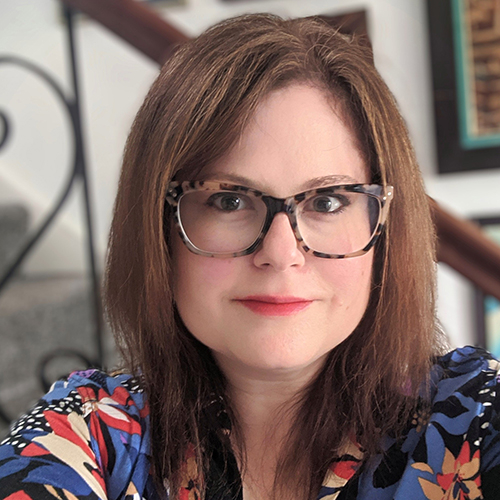

Tamara Drenttel Brand holds an MA in Near Eastern Studies from the University of Arizona and a Master’s in Public Health (MPH) from the American University of Beirut. She spent 10 years in the Middle East, where she worked as a public health practitioner, infant and maternal health consultant and an IBCLC. She has supported breastfeeding dyads from all over the world both in private practice and as a volunteer. In 2011, she founded and still actively facilitates “Mama 2 Mama Beirut Breastfeeding Support,” the largest breastfeeding peer support network in the Middle East (currently at 25k+ members). Additionally, she founded Galactablog, a professional group for lactation specialists and those aspiring-to-be (currently at 4.7k+ members) and has authored several articles for La Leche League’s monthly leader publications in both the Middle East and Ireland.
She is currently an international speaker on the topics dealing with breastfeeding in the Middle East, innovative lactation teaching strategies, working in resource-scarce settings, providing culturally sensitive lactation support, developing and implementing peer counselor training programs, mast cell disease and other related topics. Due to her own chronic health conditions, she has a special interest in educating others about mast cell disease and supporting those with chronic illnesses. She currently resides in a seaside village in Ireland with her family.
Topic: Contextualizing Breastfeeding in Lebanon - [View Abstract]
Topic: Lactation Education Outside the Box: Innovative Teaching Strategies to Engage Your Audience - [View Abstract]
Topic: Mast Cell Diseases and Lactation Care in the Post-Covid Era - [View Abstract]
Topic: Providing Culturally Sensitive Support for Breastfeeding Muslim Families - [View Abstract]
Topic: Reflections on a Breastfeeding Peer Counselor Program in Lebanon: Lessons Learned and Looking Forward - [View Abstract]
Mast cell diseases remain highly misunderstood and underdiagnosed conditions, even among medical professionals. Patients often take years to be diagnosed due to the range of symptoms and effects that such diseases can manifest. Recently, emerging evidence-based research has found links between mast cell disease(s) and Long COVID, theorizing that COVID-19 can exacerbate existing and undiagnosed mast cell diseases and that the SARS-CoV-2 virus itself could activate mast cell diseases. This raises the possibility that mast cell diseases will become more prevalent, requiring medical professionals, including lactation specialists, to be aware of their impacts and to provide the specialized care and support that such conditions require.
This presentation will provide participants with an overview of the different types of Mast Cell Diseases, symptoms, triggers and treatments. It will discuss associated chronic conditions and will highlight potential complications that such diseases can present for birth and breastfeeding. It will also provide resources to help participants determine lactation risk and compatibility with Mast Cell disease treatments and medications. Finally, this presentation will equip participants with the knowledge and practical tools to improve lactation support and care for clients with Mast Cell Disease.

View Details / Enroll
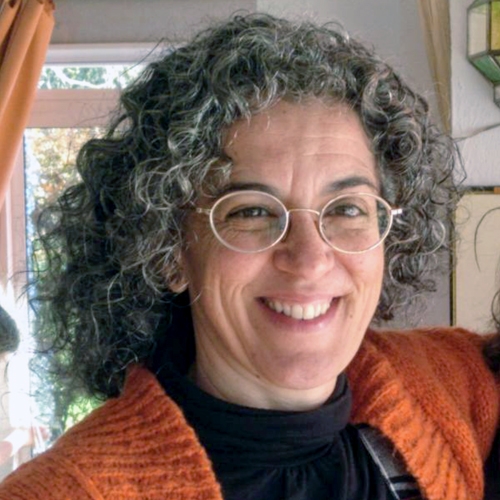
The Art and the Science: A Critical Look at the Physiology and Management of Mastitis

Carmela is a family medicine MD, bachelor´s degree in Public Health Education, and IBCLC since 2005. She is also a BFHI Evaluator and the co founder and past president of the Spanish Lactation Consultant Association (AECCLM). She works in a private Family Wellness Clinic, Raices, as person in charge of the lactation program, which includes two IBCLCs attending breastfeeding families and an extensive offer of breastfeeding training for health care professionals and breastfeeding peer counsellors. The team has trained over three thousand doctors, midwives and nurses from both the Spanish National Health Service and the private sector in Spain. She is a frequent lecturer at national conferences, and has also lectured internationally, both on-site and online. She is the author of several scientific papers on breast pain, mastitis and tongue tie. She is also the author of a breastfeeding/parenting book, “Amar con los Brazos Abiertos” (To Love with Open Arms). She is married to Carlos and they homeschool their four children.
Topic: Assessment and Management of Mastitis - [View Abstract]
Topic: Getting Milk Production off to a Good Start - [View Abstract]
Topic: Management of Chronic Breast Pain: Holistic Approach - [View Abstract]
Topic: The Art and the Science: A Critical Look at the Physiology and Management of Mastitis - [View Abstract]
Mastitis has been occurring for as long as breastfeeding itself. It is a very common difficulty in nursing women. For many decades, its diagnosis and management were considered to be straightforward. However, in the last decade new concepts have been put forward, such as dysbiosis, subacute mastitis, and the concept of the mastitis spectrum. In this talk, we will take a look at the scientific evidence (or lack thereof) for these terms and discuss their impact on day to day clinical management.
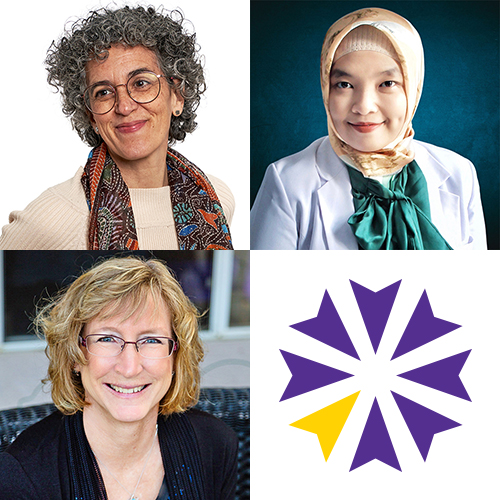
View Details / Enroll
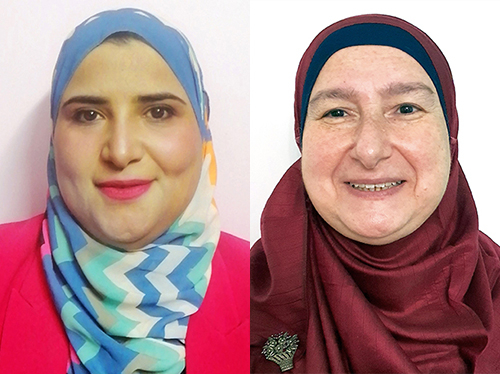

Dr. Fayrouz Essawy, pediatrician, neonatology consultant, an international board-certified lactation consultant, Neonatology Egyptian fellowship trainer, a baby friendly hospital initiative coordinator and associate alumni, Harvard Medical School Harvard Graduate of Training Of Trainer program 2020. Harvard Graduate of Egypt Clinical Scholars Research Training (CSRT) program 2021. Member of the Egyptian Society of Pediatrics Member of the Egyptian Lactation Consultants Association (ELCA) Member of the Academy of Breastfeeding Medicine (ABM) Member of the International Lactation Consultant Association (ILCA).
Amal Aly Roshdy Hassan Eltawil is a graduate of Faculty of Medicine, Cairo University, class of 1986 who obtained Masters of Pediatrics in 1992 from Faculty of Medicine, Cairo university, and Doctorate of Pediatrics from Al Azhar university in 2002. Amal became an IBCLC in 2003. Since 2004 she has been providing a pre-exam course for the Egyptian Lactation Consultants' Association of which she is a board member, treasurer and education coordinator. She is also a member of the Advisory committee of IBFAN Arab world since 2012. Amal is a member of ILCA since 2008 and a member of the Academy of Breastfeeding Medicine (ABM) since 2009. She became a fellow and Board member of ABM in 2021.
Breast milk can appear in many different colors. Most of the time these colour variations are normal, but sometimes they are an indicator of disease and it's important for care providers to know the difference. The presence of an unusual milk color, especially with colostrum, may also be a barrier to exclusive breastfeeding as it can be worrying for parents. This presentation will examine some of the various colours of breastmilk such as blood-stained, blue, and bluish-green, pink and brownish. Case studies will help identify the causes of these colour variations and when to consider underlying disease.
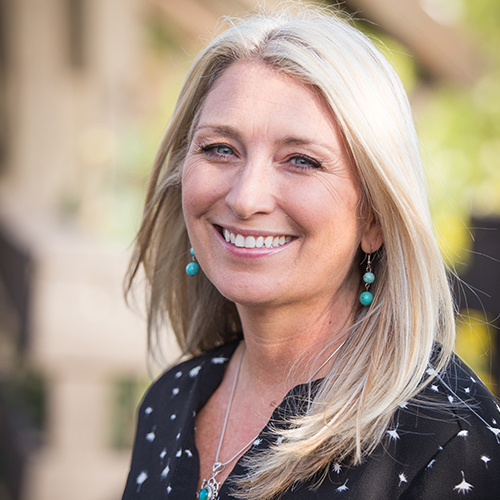

Laurel Wilson, BS, IBCLC, CCCE, CLE, CLD, CPPFE, CPPI owns MotherJourney in Morrison, Colorado. She has her degree in Maternal and Child Health – Lactation Consulting. With twenty-five years of experience working with Parents in the childbearing year and perinatal professionals, Laurel takes a creative approach to working with the pregnant family. She is a co-author of best-selling books, The Greatest Pregnancy Ever: The Keys to the MotherBaby Bond and The Attachment Pregnancy: The Ultimate Guide to Bonding with Your Baby. She currently spends a great deal of her time working with hospitals seeking BabyFriendly Status as a consultant and educator. She strives to provide the latest techniques, research and programs to her clients. Laurel is a board certified as a lactation consultant, childbirth educator, labor doula, lactation educator, Prenatal ParentingTM Instructor, and Pre and Postpartum fitness educator. She served as the CAPPA Executive Director of Lactation Programs for 16 years and trained Childbirth Educators and Lactation Educators for CAPPA certification. She is on the Board of Directors for the United States Breastfeeding Committee, a Senior Advisor for CAPPA, and also on the Advisory Board for InJoy Health. Laurel has been joyfully married to her husband for more than 25 years and has two amazing sons, whose difficult births led her on a path towards helping emerging families create positive experiences. She believes that the journey towards and into parenthood is a life changing rite of passage that should be deeply honored and celebrated.
Topic: Epigenetics and Breastfeeding: The Potential Longterm Impact of Breastmilk - [View Abstract]
Topic: Hold the Phone! Diet Does Matter During Breastfeeding: Implication of Diet on Fatty Acid Composition and Other Nutrients - [View Abstract]
Topic: Inside Out: Unraveling the Dance of NeoHormones, the Estrobolome, and the Microbiome - [View Abstract]
Topic: Postpartum Mood Disorders, Breastfeeding and the Epigenetic Links from Past Into Future - [View Abstract]
Topic: Talk To Me: How Breastmilk Acts as a Communication and Gene Expression Tool Between Mother and Child - [View Abstract]
Topic: The Milk Sharing Conundrum - The Grey Area Between Scope and Need - [View Abstract]
Topic: The Placenta and Breastmilk-Unraveling the Mysterious World of the Intelligent Organs that Protect our Babies - [View Abstract]
Topic: Understanding Zika and Lyme and Breastfeeding - [View Abstract]
Topic: Unraveling the Mysteries of Human Milk: The Fascinating Role of Neohormones, Epigenetics, the Microbiome and More! - [View Abstract]
With the recent spread of the virus, Zika and the bacterial infection, Lyme Disease, many pregnant and breastfeeding families worry about the potential impact on their babies. There is a great deal of inaccurate information on the internet regarding these diseases that many parents encounter. Having good resources and current information on these emerging diseases is imperative for new families. This presentation will address transmission of the diseases, risks to babies prenatally and during breastfeeding, and precautions for pregnant and breastfeeding mothers to take.

View Details / Enroll






